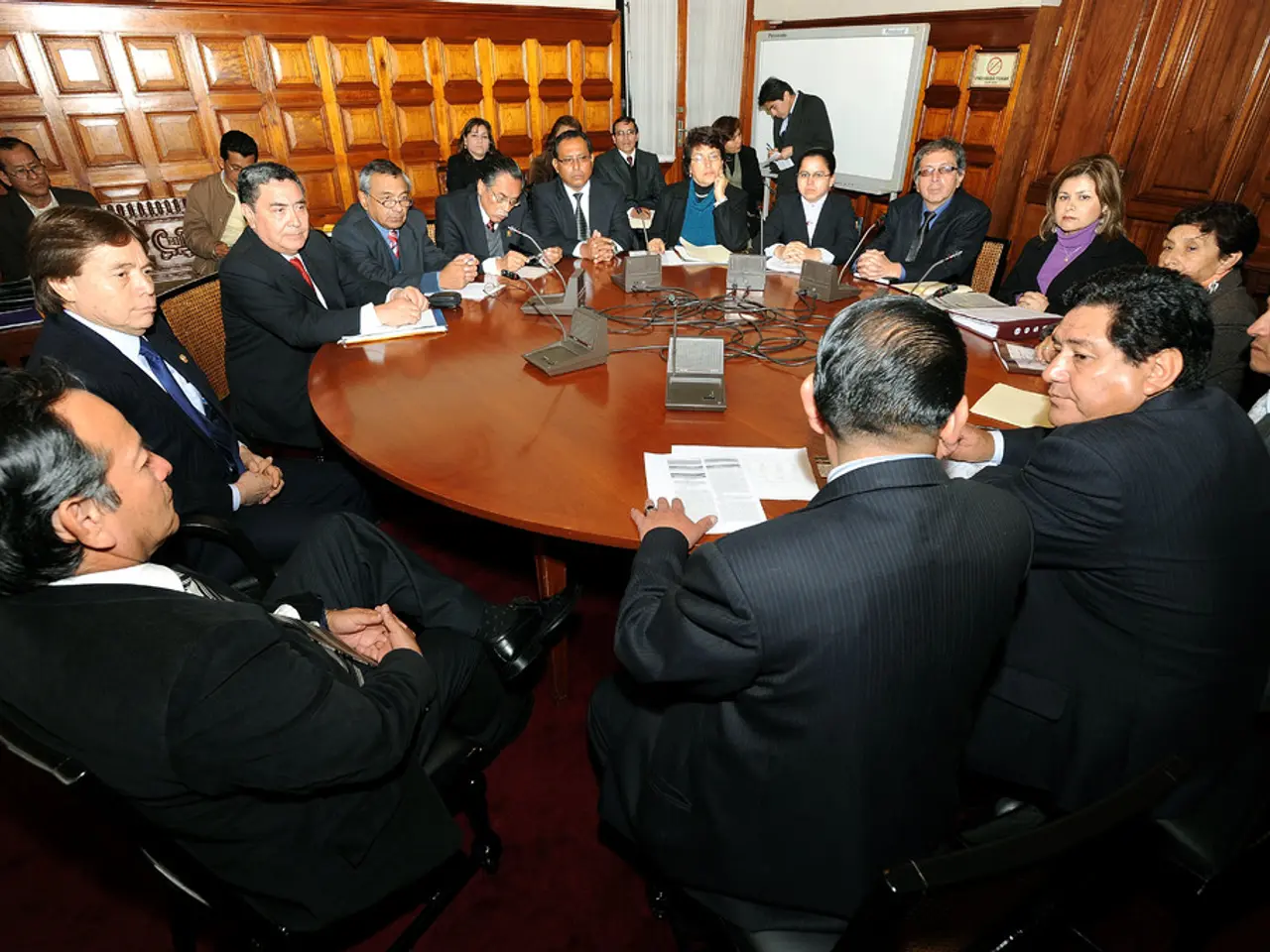Enhancing Responsibilities to Curtail the Smuggling of Illegal Substances through Our Northern Frontier
The U.S. government has announced an increase in tariffs on certain products from Canada, effective from August 1, 2025. This decision, made under the International Emergency Economic Powers Act (IEEPA) and the National Emergencies Act, is in response to concerns about illicit drug trafficking, particularly fentanyl, sourced significantly from across the Canadian border.
The additional ad valorem rates of duties on these targeted Canadian products have been increased from 25% to 35%. This rise reflects government determinations that Canada has not committed sufficient resources to interdict drug trafficking organizations or illicit drugs along the northern border, and also responds to Canadian retaliatory measures.
However, there are exceptions to these increased tariffs. Products that qualify as originating under the United States-Mexico-Canada Agreement (USMCA) and certain humanitarian or informational products are exempt. The full details of these exemptions can be found in the tariff schedules and executive order annexes.
Energy resource duties remain at or about 10% with some adjustments. For instance, certain modifications such as reduced potash duties from 25% to 10% have been made.
The Harmonized Tariff Schedule of the United States (HTSUS) has been modified to include a new heading 9903.01.16. All products of Canada that are subject to the additional ad valorem rate of duty imposed by this heading will also be subject to the general rates of duty imposed on products of Canada entered under subheadings in chapters 1 to 97 of the tariff schedule.
Goods of Canada that do not qualify as originating under USMCA and are determined by U.S. Customs and Border Protection (CBP) to have been transshipped to evade applicable duties will be subject to an additional ad valorem rate of duty of 40%.
The Secretary of Homeland Security, in consultation with the United States International Trade Commission, shall determine whether any additional modifications to the HTSUS are necessary to effectuate this order. The Secretary of Homeland Security shall inform the President of any circumstances that, in her opinion, might indicate the need for further action by the President or might indicate that the Government of Canada has taken adequate steps to alleviate the emergency declared in Executive Order 14193.
It is important to note that products described in headings 9903.01.11, 9903.01.12, and 9903.01.14, or products for personal use included in accompanied baggage of persons arriving in the United States, are not subject to the new heading 9903.01.16.
For subheadings 9802.00.40, 9802.00.50, and 9802.00.60, the additional duties apply to the value of repairs, alterations, or processing performed in Canada, as described in the applicable subheading.
The costs for publication of this order shall be borne by the Department of Homeland Security. The Secretary of Homeland Security, in coordination with the Secretary of State, the Attorney General, the Assistant to the President for National Security Affairs, and the Assistant to the President for Homeland Security, shall recommend additional action, if necessary, should the Government of Canada fail to take adequate steps to alleviate the illicit drug crisis or should the Government of Canada retaliate against the United States.
[1] Executive Order 14193, as amended [2] Tariff schedules and executive order annexes [3] Department of Homeland Security press release, July 31, 2025
- The increased tariffs on certain Canadian products, as a result of the U.S. government's concern about illicit drug trafficking, have sparked diverse opinions among politicians, policymakers, and general news outlets regarding the effectiveness of the policy-and-legislation in addressing health issues related to drug trafficking.
- Amidst the ongoing politics surrounding the trade dispute, the Health and Human Services department has released a statement showing concern about the potential impact of these tariff increases on the cost and availability of healthcare products originating from Canada.





